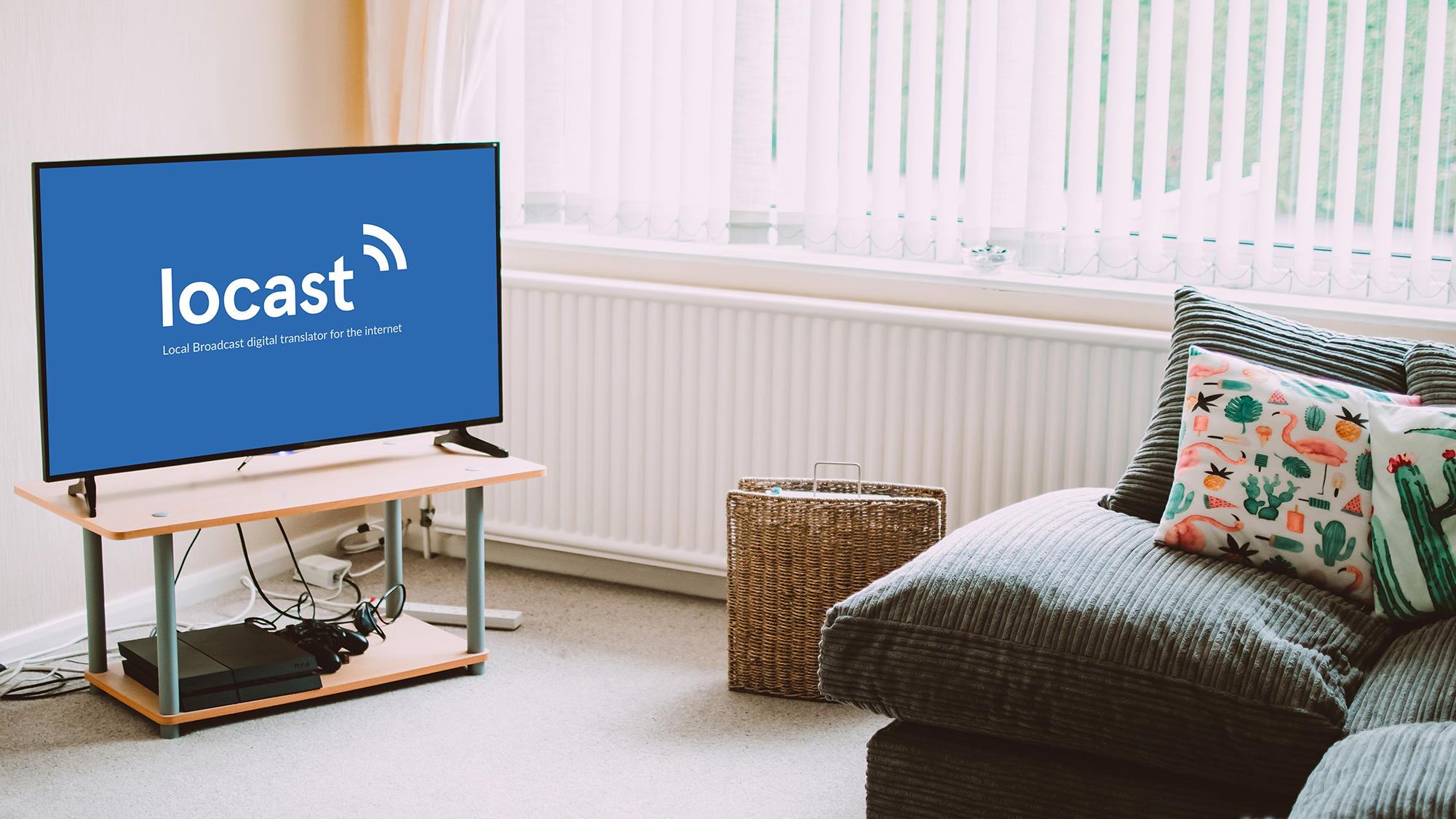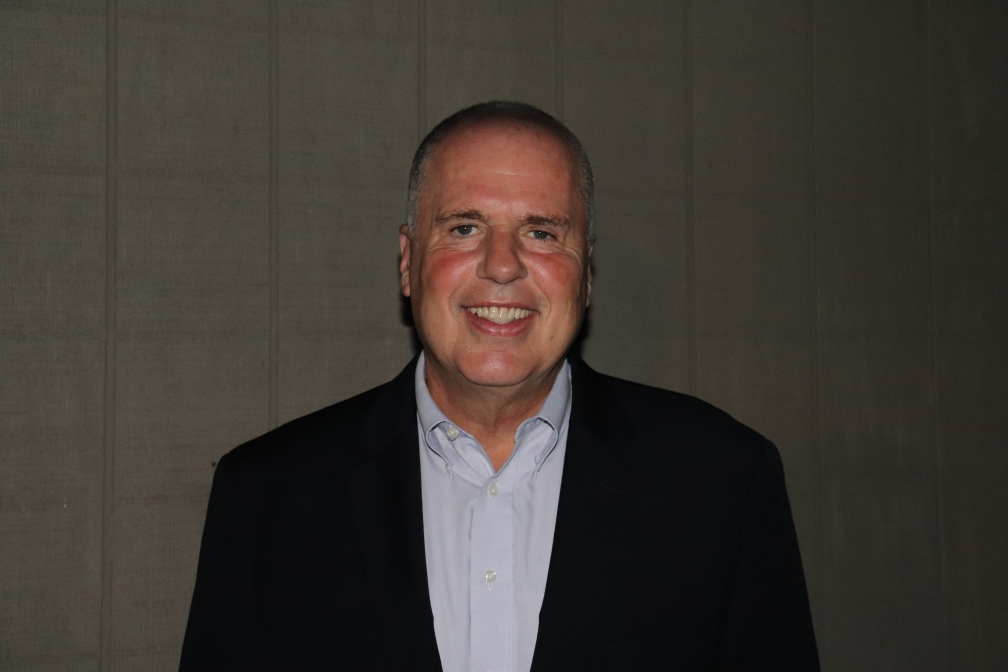Locast: Everything You Need to Know About the Streaming Platform Some Called 'Aereo 2'
The app that let you stream broadcast channels on any device is girding for the next big media tech legal showdown

The smarter way to stay on top of the streaming and OTT industry. Sign up below.
You are now subscribed
Your newsletter sign-up was successful
Followers of media technology court battles, who remember Aereo's unsuccessful legal fight against the major broadcasters in the U.S. Supreme Court eight years ago, have recently been watching another big legal showdown pitting a tech startup (Locast) against the Big Four.
Locast, founded two years ago by attorney and former Dish Network executive David Goodfriend, was a live TV streaming service operated by nonprofit advocacy group the Sports Fan Coalition NY. On Sept. 2, Locast suspended operations after suffering a major blow in its lengthy court battle against the Big Four broadcasters. (More on that later.)
The service provided local broadcast signals over the internet in various cities through an app that’s playable on Roku, Amazon Fire TV, Apple TV, Android TV and TiVo devices, as well as iOS and Android smart phones and tablets. With Locast, you can stream programming on the Big Four broadcast networks (ABC, CBS, NBC and Fox), among other outlets.
Also Read: The Five Spot: David Goodfriend
This lighting rod for media tech lawsuits fittingly launched in January 2018 in New York, using a four-foot antenna mounted on the Trump International Hotel in Manhattan. With the announcement of the streaming service's rollout in Pittsburgh on July 23, Locast was available in 34 markets, including New York, Los Angeles, Chicago, Philadelphia, Dallas, Houston, San Francisco, Boston, Atlanta, Phoenix, Seattle, Denver, Baltimore, Madison, Wisconsin, and Portland, Oregon; along with Washington, D.C.; and Sioux Falls, Sioux City and Rapid City, South Dakota. Locast has also expanded into Puerto Rico.
Up to the suspension of its services, Locast claimed more than 3 million viewers have signed up for the service.
There was no subscriber cost for Locast, and the platform wasn’t ad-supported, either. Donations, however, were suggested by its nonprofit operator. The nonprofit service launched a GoFundMe page with the goal to raise $500,000. Locast, in addition, had a donate button on its website (the donation button is still there!), suggesting subscribers donate at least $5 per month. If subs don't donate, their streams will be interrupted every 15 minutes with a solicitation for donations.
The smarter way to stay on top of the streaming and OTT industry. Sign up below.
“There are considerable costs for equipment, bandwidth and operational support that helps run Locast,” according to a statement on the website. “These costs will only go up as we expand our service to new markets, as well as when more and more people cut the cord to become new Locasters.”
Locast's solicitation of "donations" was its Achilles' heel.
Also Read: Gigi Sohn Joins Locast Board
Locast Lawsuit
Few discussions about Locast’s legal underpinnings don’t involve Aereo, entrepreneur Chet Kanojia’s streaming startup that predated Locast by nearly a decade. As you may recall, Aereo ultimately crashed on the rocky shores of the U.S. Supreme Court.
Launched in 2012, Aereo offered a viewing alternative for early cord cutters looking for a way to replace major broadcast stations in era that lacked platforms like CBS All Access. Aereo’s model let subscribers pay to lease individual, dime-sized antennas situated in local warehouses. But Aereo (like Locast today) didn’t obtain permission from the copyright owners of any programs it transmitted. And in a lawsuit filed against Aereo by a number of the broadcast networks, SCOTUS ruled against the startup. The 2014 ruling effectively put Aereo out of business.
Also Read: Locast Heading to Puerto Rico
So what made Locast think the same thing won’t happen to its service?
Locast, in contrast, operated under a law written into the Copyright Act of 1976 (17 U.S.C. 111(a)(5) that allows nonprofit translator services to rebroadcast local stations without receiving a copyright license from the broadcaster, and even collect a fee to cover the cost of operations. Locast streamed signals from local TV stations, all positioned to comply with FCC exclusivity rules. Locast claimed it didn't have to negotiate retransmission fees from broadcasters, and was exempt from copyright restrictions, unless it was turning a profit.
Of course, the legal challenge from the major broadcasters was inevitable.
In July 2019, ABC, CBS, FOX and NBC filed suit against Locast, comparing it to Aereo and alleging that the streaming service violates their copyrights by retransmitting their programming without permission and compensation. The lawsuit also accuses Locast of allowing its service to be used as a pawn in broadcast retransmission negotiations with Dish and AT&T, operators of the Dish and DirecTV satellite TV companies, respectively.
“Locast is simply Aereo 2.0, a business built on illegally using broadcaster content,” the suit contends. “While it pretends to be a public service without any commercial purpose, Locast’s marketing and deep connections to AT&T and Dish make clear that it exists to serve its pay TV patrons.”
Also Read: Locast Seeks Funds for Legal Fight Against Broadcasters
Both AT&T and Dish added Locast apps to their pay TV set-top boxes. (In the case of AT&T, this at the time also included U-verse set-tops.) AT&T also contributed $500,000 to Locast’s aforementioned nonprofit parent company, the Sports Fans Coalition.
“Locast is not a public service devoted to viewers whose reception is affected by tall buildings. Nor is Locast acting for the benefit of consumers who, according to Locast when promoting its purportedly free service, ‘pay too much,’” the lawsuit reads. “Locast is not the Robin Hood of television. Instead, Locast’s founding, funding and operations reveal its decidedly commercial purposes.”
Locast Countersuit
In its countersuit, Locast accused the Big Four broadcasters of colluding against it, claiming the plaintiffs are using their market power to prevent distributors and other platforms from partnering with them, citing virtual MVPD YouTube TV as an example.
“What Disney and the giant broadcasters don’t want the public to know is that they are attacking a tiny non-profit serving the public interest with free local broadcast channels over the internet, and that these companies just want to protect their billions of dollars in profits and fees for channels that are supposed to be free to the public in the first place,” said founder Goodfriend, in a statement. “Now that technology can deliver local broadcast channels over the internet without costing consumers an arm and a leg, Disney and these huge broadcasters will go to any length to shut us down, including through baseless claims, using expensive New York City and Washington, D.C., law firms.”
AT&T, additionally, chimed in with its support.
“Locast offers consumers an innovative new way to access free over-the-air signals,” the telecom said in a statement. “We support technologies that give consumers more choices and better access to this local content.”
In May 2020, Goodfriend said he believes it's now "very likely" that the service will prevail in its defense of a copyright suit filed against it by the major media companies.
September Trial
Locast will face off against the networks in court in a September 2021 trial.
In April, both sides filed letters to U.S. District Court Judge Louis Stanton, who is overseeing the case.
Gerson Zwelfach, a partner at Williams & Connoly LLP who represents the plaintiffs (ABC, CBS, Fox and NBC), argued that because Locast makes it difficult to use the service unless a monthly donation is made, the service is not a public service as it claims under the Copyright Act of 1976.
"Although Locast calls the amounts it extracts from users 'donations,' courts 'look beyond mere formal labels and consider the substance of the transaction,'" wrote Zwelfach in his letter. ”Here, the substance of the transaction is clear: Locast demands users pay a monthly fee in exchange for uninterrupted services.”
Orrick, Harrington and Sutcliffe LLP attorney David Hosp, representing Goodfriend and Locast parent Sports Fans Coalition NY, responded that the streaming service provides "secondary transmissions" transmitted legally via a nonprofit.
“No one owns SFCNY,” Hosp wrote. ”It pays no dividends, no distributions, and no salaries. It pays typical, market prices for its costs, such as physical space, equipment, technical upkeep, and internet access. And it defrays those costs by seeking and accepting donations, including donations from viewers, for the actual and reasonable costs of maintaining and operating the secondary transmission service. Plaintiffs cannot dispute any of these facts.”
At the end of August, Judge Stanton ruled on the letters filed by both parties, denying Locast's motion for summary judgment while granting the broadcasters' motion for partial summary judgment.
Judge Stanton's ruling was a major blow to Locast with Stanton shutting down the streamer's claim that it was a nonprofit translator service and therefore exempt from copyright restrictions.
"Based on the undisputed facts, it is clear that the Locast service is not offered without charges other than those 'necessary to defray the actual and reasonable costs of maintaining and operating' its service," wrote Stanton in his ruling.
"The payments defendants elicit from users are charges assessed on users to avoid constant service interruptions, regardless of whether defendants euphemistically call them publicly 'recommended donations'."
The day after the ruling, Locast dropped its request for contributions to avoid service disruption. That move was then followed by the complete suspension of its service.
Locast has not indicated whether the suspension is permanent or whether it will continue to fight.
Marc Berman is editor-in-chief for media-centric The Programming Insider (programminginsider.com), which pioneered the email newsletter format at its inception in 1999. Marc has written for a wide range of publications including Broadcasting + Cable, Next TV, Forbes, Newspro, Campaign US, The Hollywood Reporter and Variety. Known as “Mr. Television” at Mediaweek (now Adweek), Marc has appeared on camera on Entertainment Tonight, Extra, Inside Edition and CNN and MSNBC, among other series and outlets. He is a member of The Television Critics Association and The Broadcast Journalists Television Association. And Marc put his TV historian hat on as author of desk calendar Today in TV History.

